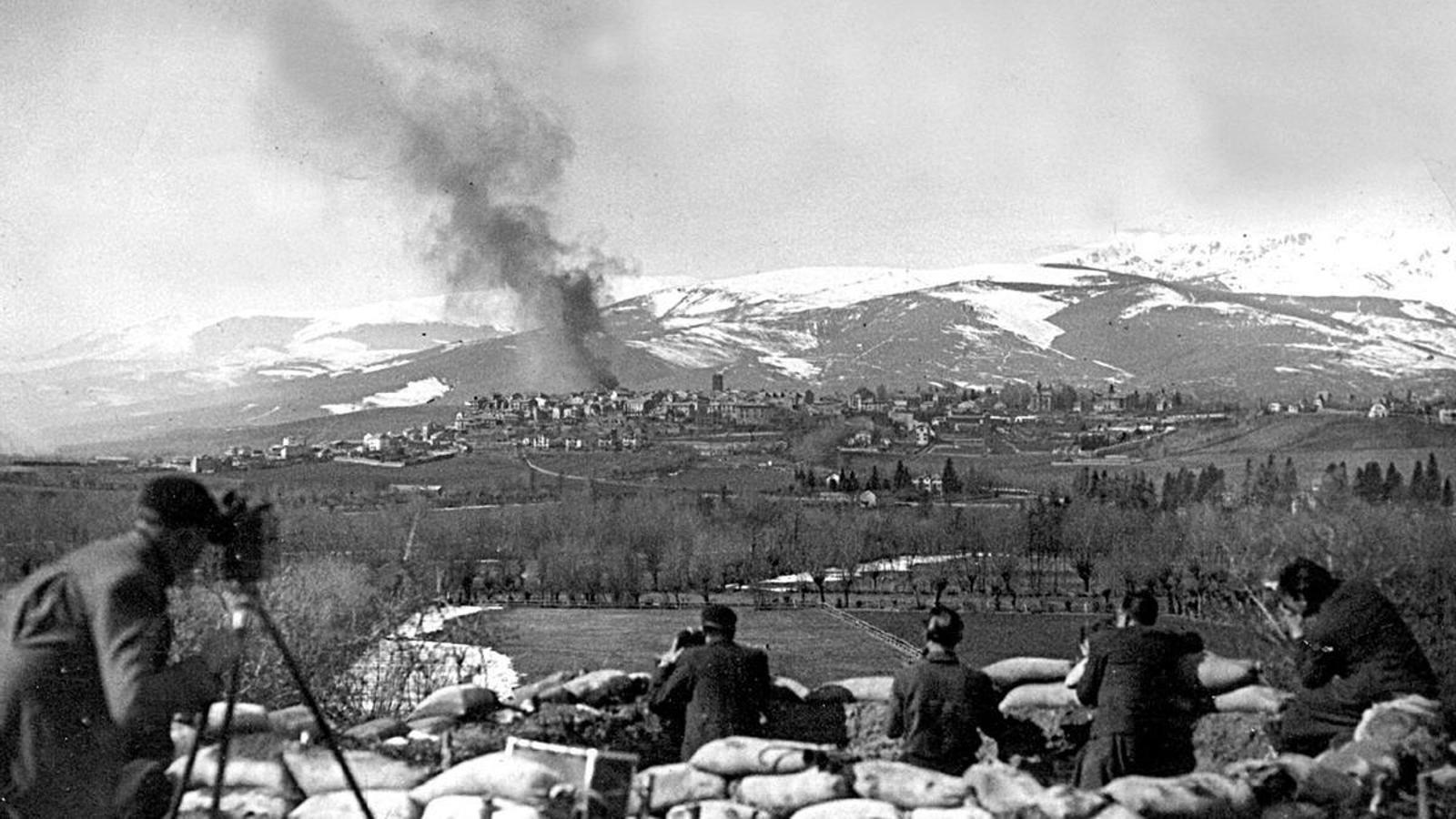"Not even the residents knew that there had been a Francoist concentration camp in Puigcerdà."
After a long investigation, historian Marc Pont has found where the Ceretan population camp was located.

BarcelonaThere is no visible sign that there was a Francoist concentration camp in Puigcerdà. Not even the locals have any memory of it. However, it existed and operated between 1939 and 1941. It was located in Villa San Antonio, a summer resort converted into a camp during the Civil War, and later on the site where more than 400 people were confined. "Many Republican exiles who fled to France and later returned, convinced by Francoist propaganda, were confined in this camp, located near the border," explains historian Marc Pont Fitó. "The border served to classify and control people under exceptional legal conditions, and there was collaboration between the French and Francoist repressive systems," he adds.
The existence of this camp is not explained anywhere, and Pont has had to follow many leads to document it. In the information on the tower, a building by Josep Azemar Pont, it is said that there was a summer camp and a plaque reminds us that it is one of the settings for the novel. The Angel's Game (Planeta, 2008). Nowhere is there any visible sign of its past as a concentration camp. "There is a mention of the Puigcerdà camp in Franco's concentration camps (Ediciones B, 2019), by Carlos Hernández, and it is mentioned in an article by historian Aram Montfort, but it was not located. All the information I had was that it had been operational from December 1939 to June 1941. There is no record. Not even the locals knew that there had been a Francoist concentration camp, and many people in Puigcerdà denied it," Pont explains.
A key witness
The Puigcerdà camp was located barely three and a half kilometers in a straight line from the Tor de Querol-Enveig camp and just over a kilometer from the Guingueta de Ix camp. The historian and sociologist began to unravel the mystery after meeting Artur Solà, a resident born in Puigcerdà who lives in Barcelona, who did have memories of the camp. In an interview, Solà recalled the location: "I do remember that in that triangle at Clausolles and Camí d'Ur there was a large tower, which is still there, but back then the entire triangle was a garden and it belonged to them [referring to the Francoists]." Solà explains that he would go to play and there were guards: "This triangle, which is much larger, was full of people being held; now, whether they were Spaniards, whether they were Republicans, whether they were foreigners who weren't part of the regime, who were being watched, or what, I don't know."
In the archives of the Puigcerdà Town Hall, Pont found a letter requesting the lighting of an area: "I request that you please, as soon as possible, properly illuminate the part of the walk between the lake and the Prisoner Concentration Camp of this Town, as well as the section between said camp and the prison, as it is absolutely necessary for the forces stationed there and that adorn that area.". In the same archives, there are anonymous memoirs of an exile who returned to Spain and, after being interrogated, was taken to "a chalet that was used to store all those who came from France. It was guarded by ten soldiers, two corporals and a sergeant. [...] It got late and I went to sleep. There was no shortage of beds, since this tower was previously occupied by a children's colony," the text said. Another fact is that Miquel Coll, a descendant of the Moner family, owners of the summer tower, stated that it was difficult for them to recover the tower because it had been occupied by the Francoists.
Pont states that the camp began operating as soon as Franco's forces occupied the town in February 1939, but the bulk of the documentation, which is housed in the Documentation Center of Historical Memory in Salamanca, refers to the period between December 1939 and December 1941. "There could have been many more, because the camp had begun operating in February and the arrivals and departures from the months of April and May 1941 are also not preserved," Pont explains.
"Through the PA system in the French camps, on occasion, Francoist propaganda attempted to sneak in messages promising mercy and forgiveness, but blackmail was also used," Pont points out. Franco enjoyed the collaboration of the French authorities, who allowed Spanish spies to infiltrate the camps to convince the inmates to return. Furthermore, the French feared the political influence the Spanish refugees might have and were overwhelmed by the arrival of tens of thousands of Republican refugees in just a few days during their retreat. "In France, the Spanish refugees faced many hardships and cruelty from French law enforcement, and Francoist agents promised them food, cigarettes, and freedom from reprisals in Franco's Spain," says the historian.
Most stayed very briefly in Puigcerdà, because the camp functioned first as a sorting center and then as a distribution center for people from France bound for other camps. "They were transferred hundreds of kilometers to other distribution centers and internally. A significant number were also in labor battalions, disciplinary battalions of worker soldiers, and other forced labor units. Most had already come from a long journey to the front, fleeing the war, or from a long and hard journey internally to France," he states. Puigcerdà was the first chapter of a long journey that, in some cases, had a tragic ending: summary courts-martial that could result in life imprisonment or the death penalty. In France, the future wasn't too hopeful either: confinement in camps, companies of foreign workers, deportations to Franco's Spain, and even confinement to Nazi concentration camps that could end in extermination. "The repression of the defeated was especially cruel on both sides of the border, exemplary and overwhelming," says Pont.
